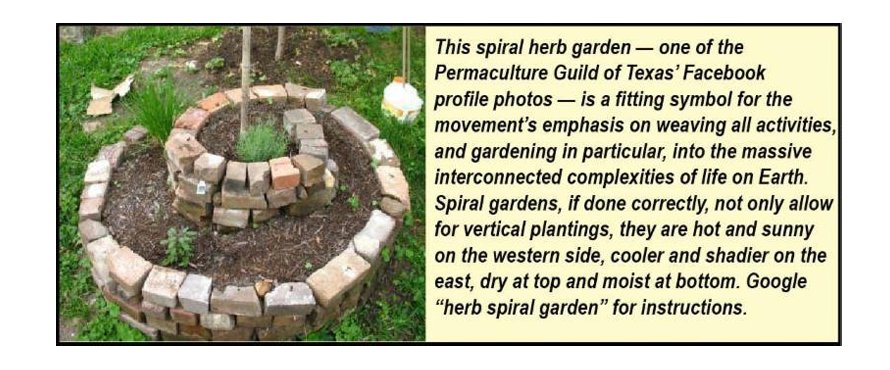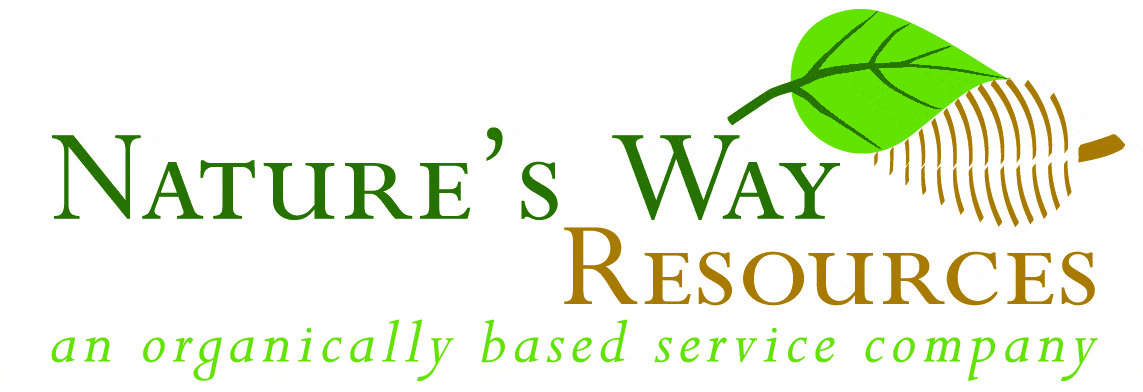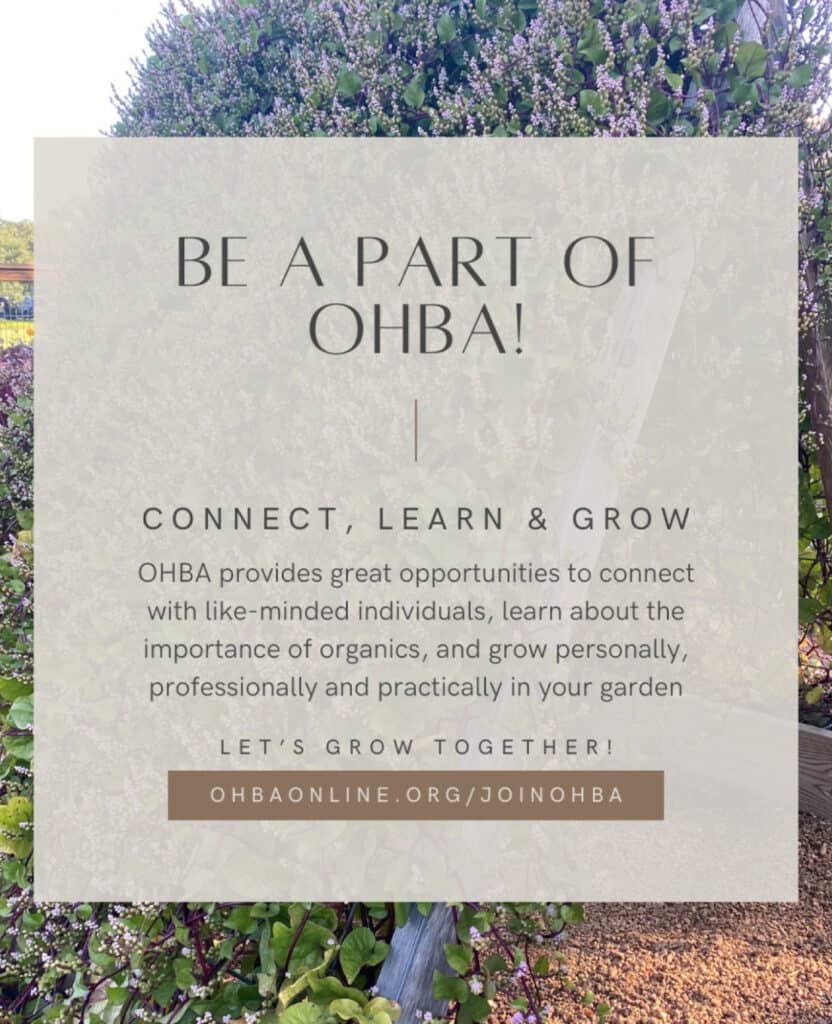By Shawn McFarland AIA, LEED AP Urban Harvest Advisory Board Member Teacher of Permaculture (houstonperm@aol.com)
The simplest answer is that Permaculture is a method for designing sustainable human habitats. Permaculture involves a holistic , multi-disciplinary approach to evaluating and solving problems.
The word Permaculture is a conjunctive of two words — Permanent and Agriculture. The Permaculture concept founder, B ill Mollision (who died Sept., 2016) — working with his student, David Hollgren — came up with the definition in the early 70’s. Bill Mollison would say that the two words he really meant to combine were Permanent and Culture: the very definition of Sustainability, designing human habitat for permanence for all time forward.
Whatever that conveys to you, it means we don’t wreck the planet for our future generations to provide for themselves and their children. Learning Permaculture revolutionizes how we think about the way we live our lives. So many positive actions we can all take will conserve resources or use them more wisely. We aim to invent and formulate better methods to get more bang from our bucks. For instance, now:
- Our buildings have become more energy efficient.
- Our cars drive longer on a gallon of gas.
- Electric cars use no gas at all.
- Renewable energy sources are exploding our ability to generate power with no dangerous emissions.
- We have more compact cities and generally better transit options.
- We are a very connected society with the internet, media and our relationships with others.
The positivity that the Permaculture principles describe always amazes me. Permaculture formulates ways to design human habitats and live our lives with less waste: We learn to grow our own food because:
- Our own food is healthier, more nutritious and more flavorful
- The process gives us exercise, therapy, sunshine, community with others and ways of being more resilient.
- It is such a joy to eat fresh fruit and vegetables not treated with pesticides and forced into a simulated state of ripeness.
- We recycle our waste because we know there is still energy in the product.
The apple cores go into the compost, the big green recycle bin goes to the street. We buy many recycled products without even knowing it. And we give back to our communities because we have had a good life.
Contact Shawn at houstonperm@aol.com. Contact the Permaculture Guild of Houston at https://www.facebook.com/permaculturehouston.
“Transition Houston” ( www.transitionhouston.org) is a Guild offshoot group focusing on garden and community building to educate about peak oil* and localizing lifestyles. To meet personally with Guild members, attend


